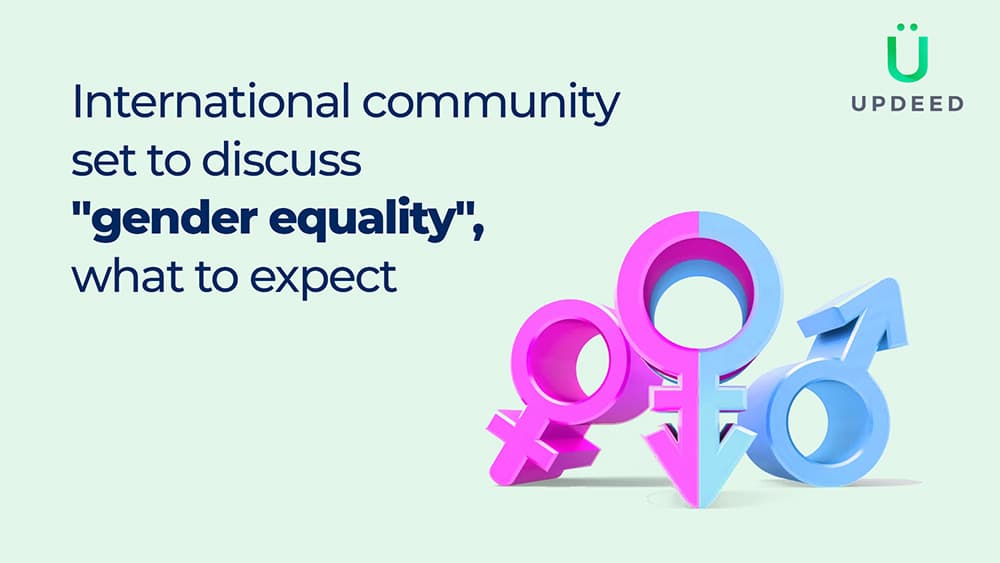International community set to discuss “gender equality”, what to expect
UN Women will be at Davos, Switzerland, from January 16 to 20, 2023, during the annual meeting of the World Economic Forum to put a spotlight on issues of gender equality and other problems women are facing.
UN Women will host solution-focused discussions with leaders from across governments, businesses, and civil society organisations this week under Generation Equality, the world’s foremost effort to accelerate investment and implementation of gender equality.
But why? Let’s have a look at some of the stats which the UN highlights:
- According to the most recent Sustainable Development Goal (SDG) 5 data, gender equality will not be achieved in the world by 2030. The worldwide gender gap won’t be closed for another 286 years.
- Nearly one in three women had been the victim of physical or sexual abuse at some point in their lives.
- The majority (nearly 85 per cent) of Fortune 500 CEOs are male.
To consider, gender inequality is one of the most important problems facing society today. Unfortunately, societies still emphasise on giving one gender dominance and authority. This is a major issue since it makes the stereotype seem “natural” to us and leaves an indelible mark on our minds.
Such stereotypes can cause severe mental health problems and even suicide. Moreover, stigmatising people with phrases like “behave like a man” or “get married and have children” can take a toll on a lot of people’s mental health.

How to achieve gender equality?
The majority of societies are patriarchal, and it is evident that men continue to dominate practically all fields. The pay gap is an excellent place to start when addressing gender equality since it will help economies grow. Gender equality must be attained for our society to begin progressing.
Additionally, educating females benefits the economy, and ensuring that poor women and girls have access to education—one of their most fundamental rights—is crucial.
One of the most important areas where gender equality needs to be achieved is in the workforce. Despite progress in recent decades, women continue to be underrepresented in leadership positions and are often paid less than men for the same work. This is known as the gender pay gap and it persists across industries and countries. Closing the gender pay gap is crucial for achieving gender equality, as it would benefit women, their families, and the economy as a whole.
Another area where gender equality is needed is in education. While access to education has improved for girls in many parts of the world, there are still many barriers that prevent them from getting the same quality of education as boys. These barriers include poverty, cultural attitudes, and lack of infrastructure. Ensuring that girls have equal access to education is crucial for their development and for the development of their communities and countries.
Gender equality is also important in the area of healthcare. In many parts of the world, women have less access to healthcare than men, and when they do access healthcare, the quality is often lower. This is particularly true for women from marginalized communities, who are often the most at risk of poor health outcomes. Ensuring that all women have access to quality healthcare is crucial for their physical and mental well-being, as well as the well-being of their families and communities.
Efforts to promote gender equality include laws and policies that address discrimination, as well as social and cultural changes that challenge patriarchal norms and stereotypes. For example, laws that prohibit workplace and education discrimination and policies that support parental leave and flexible working hours can help create a more equal society. Additionally, social and cultural changes, such as challenging stereotypes about gender roles and promoting gender-sensitive education, can help to change attitudes and create a more equal society.
Conclusion
Gender equality is essential for the achievement of a fair and just society. It is a fundamental human right that must be guaranteed to all individuals, regardless of their gender. While progress has been made in recent decades, much work is still to achieve gender equality in the workforce, education, and healthcare. Laws and policies, as well as social and cultural changes, are needed to create a more equal society.
Ready to make a positive impact in the world?
UPDEED is the place for you. Our free and open platform is filled with inspiring stories from individuals and organizations who are making a difference in their communities and beyond. Connect and collaborate with like-minded individuals from around the globe on UPDEED, and discover your own potential to create meaningful change. Join our community and make a difference.





